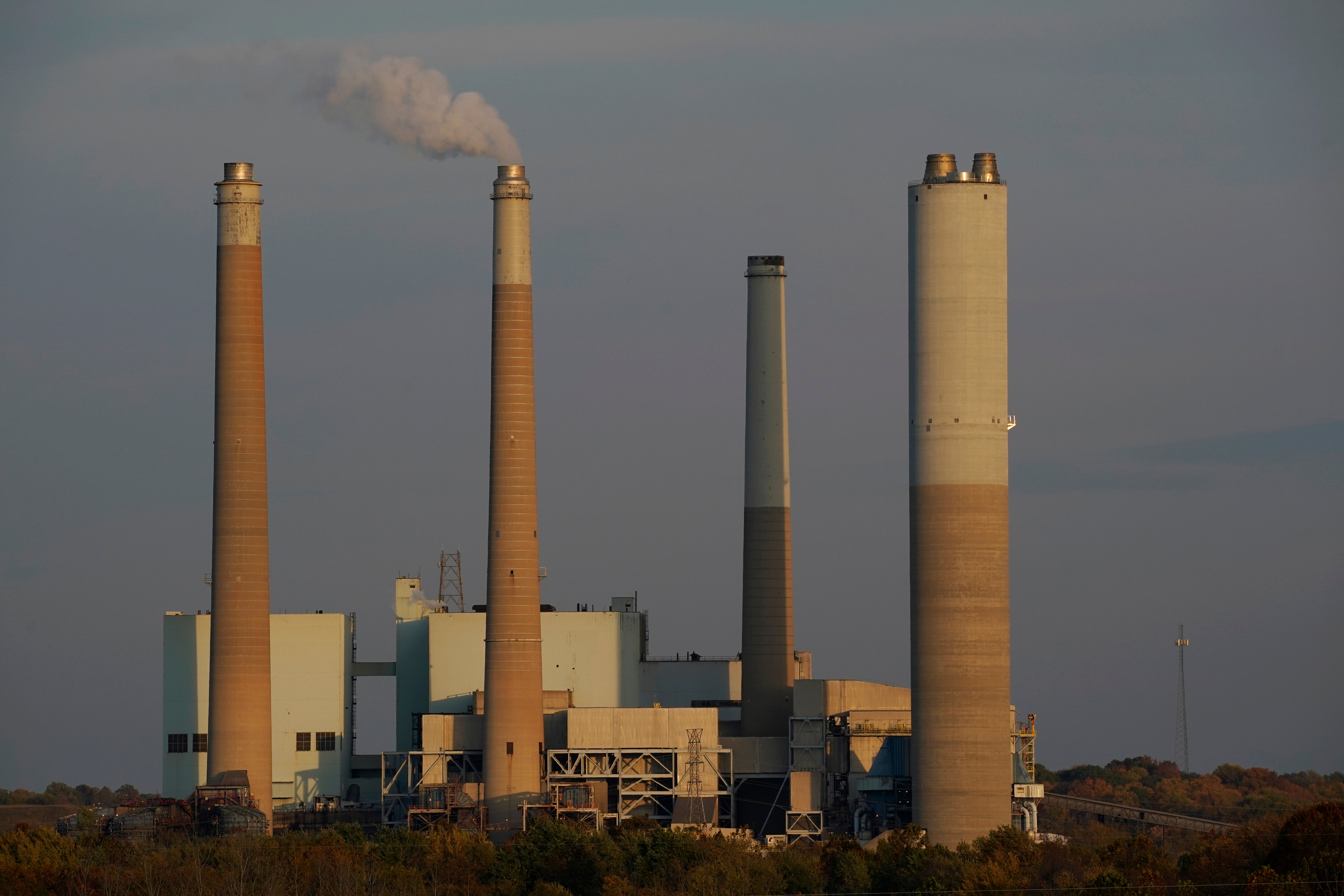SEC climate rule prompts a rush to sue. Experts say companies are likely to prepare to comply anyway
An expected long legal battle has begun over a new rule that requires companies to disclose some emissions and climate-related information

Your support helps us to tell the story
From reproductive rights to climate change to Big Tech, The Independent is on the ground when the story is developing. Whether it's investigating the financials of Elon Musk's pro-Trump PAC or producing our latest documentary, 'The A Word', which shines a light on the American women fighting for reproductive rights, we know how important it is to parse out the facts from the messaging.
At such a critical moment in US history, we need reporters on the ground. Your donation allows us to keep sending journalists to speak to both sides of the story.
The Independent is trusted by Americans across the entire political spectrum. And unlike many other quality news outlets, we choose not to lock Americans out of our reporting and analysis with paywalls. We believe quality journalism should be available to everyone, paid for by those who can afford it.
Your support makes all the difference.The U.S. Securities and Exchange Commission's new rule requiring companies to disclose some emissions and climate-related information was barely passed before the agency was being hauled to court.
The rule adopted in early March was watered down from what the nation's top financial regulator had proposed two years ago, thanks to intense lobbying and talk of litigation from business and trade groups and some conservative lawmakers.
But weakening the rule didn't stave off lawsuits, and what's expected to be a lengthy legal battle is now underway. Here are some things to know about the rule and what's ahead:
EXACTLY WHAT IS THE SEC REQUIRING?
The rule requires that U.S.-listed companies publicly report their greenhouse gas emissions, climate-related risks and information about their plans to transition to a low-carbon economy.
The agency dropped a requirement that would have had companies report some indirect emissions known as Scope 3. Those don’t come from a company or its operations, but happen along its supply chain — for example, in the production of the fabrics that make a retailer’s clothing — or that result when a consumer uses a product, such as gasoline.
The rule was also softened to allow companies to decide whether some direct and indirect emissions are “material” to their business before reporting them, giving them some discretion in whether to report.
Some smaller companies don't have to report their emissions at all.
WHO IS CHALLENGING THE RULE?
Just hours after the SEC adopted the rule March 6, a coalition of 10 states including West Virginia, Alaska and Georgia announced they were filing a challenge with the U.S. Court of Appeals for the 11th Circuit.
The U.S. Chamber of Commerce, a strong opponent of the regulation from the start, filed its own expected lawsuit the following week.
Sierra Club, the environmental group, and the Sierra Club Foundation also filed suit last week, arguing that the final rule will tell investors much less about the risks companies face from climate change compared to what was originally proposed. Climate risks are already having a profound impact on the U.S. financial system, they argued.
Last Friday, a federal appellate judge in Louisiana agreed to temporarily pause the rule pending a challenge from two oilfield services companies. Liberty Energy Inc. and Nomad Proppant Services LLC argue that the SEC rule went beyond the agency's authority, would be overly burdensome because of compliance costs and sought to harm the oil and gas sector.
WHY ARE THEY CHALLENGING IT?
Many Republicans, some industry groups and companies accused the SEC of overreach when they first proposed the more robust rule in 2022. Criticism largely centered on whether the SEC went beyond its mandate to protect the financial integrity of security exchanges and investors from fraud.
Despite the weakened final version of the regulation, that argument hasn't gone away.
WHAT ARE COMPANIES DOING WHILE THIS PLAYS OUT?
Ropes & Gray attorney Michael Littenberg said companies will prepare for compliance while the lawsuits move forward. Whatever the outcome, many companies will have to comply with similar rules in California and the European Union, which recently moved ahead with requirements for companies to disclose their emissions and other climate-risk information.
“What does the stay mean for companies subject to the rules? At this point, likely not much," Littenberg said.
“The climate risk reporting architecture takes time to build,” said Suzanne Ashley, a former special counsel and senior advisor to the SEC’s enforcement director and founder of Materiality Strategies, which advises companies on issues including regulation. “It’s not prudent for companies to delay or fail to prepare betting on the outcome of the legal challenge.”
Kristina Wyatt, chief sustainability officer at Persefoni, a carbon accounting software firm, said there’s “a sense of inevitability that companies will need to have a sense of their carbon emissions. The SEC isn’t the only game in town.”
Several plaintiffs have made similar arguments against the SEC’s climate rule. Wyatt said those cases will eventually be consolidated and a lottery process will decide which U.S. appeals court will hear that case. A different appeals court might revoke or modify the stay, she said.
California’s measure passed last year. It will require both public and private companies operating in the state with more than $1 billion in revenue to report their direct and indirect emissions starting in 2026.
___
The Associated Press’ climate and environmental coverage receives financial support from multiple private foundations. AP is solely responsible for all content. Find AP’s standards for working with philanthropies, a list of supporters and funded coverage areas at AP.org.